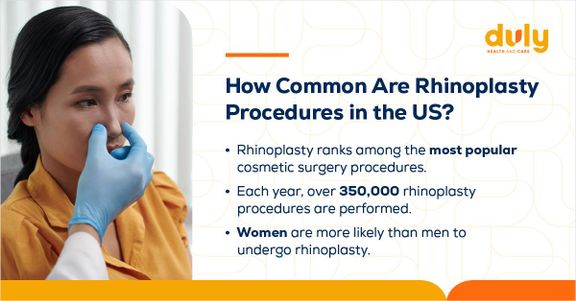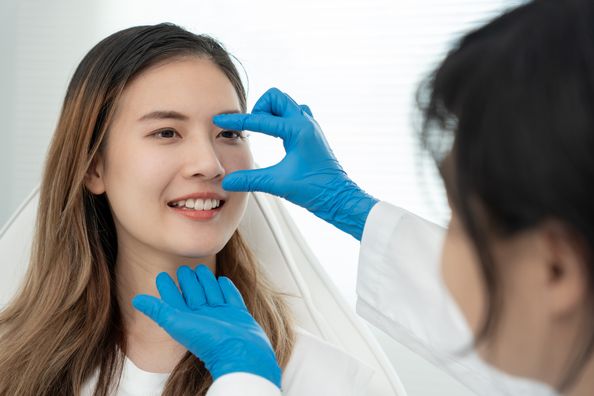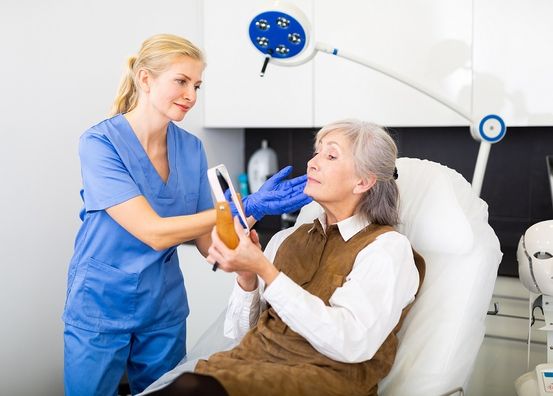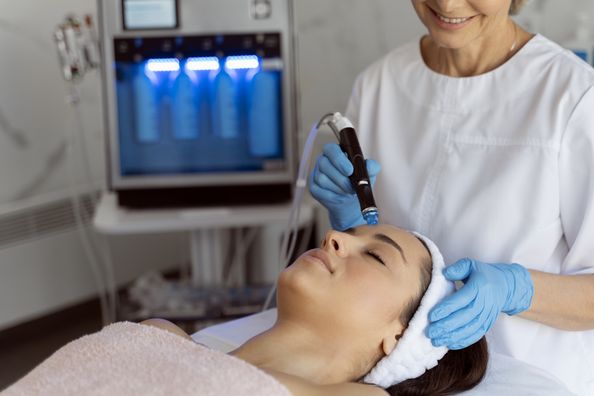Your nose is a central part of your face, making it a key aspect of your appearance. It also plays a role in a critical biological process — breathing. By filtering, cleaning, warming, and moistening the air that enters your body, your nose helps air move through your respiratory system and helps you breathe. Your nose also gives you a sense of smell and, because of this, allows you to enjoy the flavor of foods.
This small but mighty body part does a lot for you. But sometimes, people encounter issues with their nose, like broken bones, breathing problems, or simply disliking how it looks. To address these concerns, some turn to a procedure called rhinoplasty.

Rhinoplasty — often referred to as a nose job — is a surgical procedure to change the size or shape of your nose. While it’s commonly associated with improving your appearance, rhinoplasty can also be functional and address other health issues. Here are 3 benefits of this procedure.
1. Rhinoplasty can fix a broken nose.
Like other bones in your body, the bones and cartilage in your nose can break or fracture. This is often due to a car accident, sports injury, fall, or other comparable trauma. Nose fractures are common, and they account for up to 50% of facial fractures.
Severe cases of a broken nose may require rhinoplasty, which puts your nasal bones and cartilage back in their right place, creating a new nose shape. Rhinoplasty can also relieve breathing problems caused by a break or fracture.
2. Rhinoplasty can fix a deviated septum.
Your septum is the cartilage and bone that separates your nasal cavity into two. This is what creates your two nostrils. If your septum is significantly off-center, you have what’s called a deviated septum.
Some deviation is normal — and up to 80% of people have at least a little deviation. Many don’t realize it because it doesn’t cause any symptoms. However, if it’s severe enough, it can lead to breathing problems, headaches, noisy breathing, snoring, and sleep apnea.
Deviated septums can also worsen chronic sinusitis, which leads to chronic swelling and inflammation of your sinuses (spaces inside your nose and head). This condition can lead to infections, trouble breathing, and tenderness around your eyes.
Rhinoplasty is used to open blocked nasal passages that can be caused by a deviated septum, helping to relieve problems related to the deviation.
If you have symptoms that may be caused by a deviated septum, make an appointment with a Duly Facial Plastics & Reconstructive Surgeon or Otolaryngologist to determine if rhinoplasty can help.
3. Rhinoplasty can improve your self-esteem.
Because of the prominence of your nose, how it looks can have a significant impact on how you feel about your appearance. Rhinoplasty can improve the appearance of your nose and, in turn, boost your self-esteem.
Rhinoplasty can address the following issues related to your nose:
- The size of your nose relative to the rest of your face
- The width of your nose at the bridge
- Bumps or depressions on your nose (which create your nose profile)
- A large, upturned, hooked, or drooping nasal tip
- Large, wide, or upturned nostrils
- An asymmetrical nose
While there’s no such thing as a perfect nose, rhinoplasty can improve facial balance and proportion related to your nose. As a result, you’ll feel less self-conscious about your nose — and more confident in how you look.
Treating a Range of Nose Issues With Rhinoplasty
There are a number of reasons you might benefit from rhinoplasty. From functionality to appearance, your nose plays an important role in life. Problems like breathing issues, pain, and being unhappy with your appearance can cause minor frustrations or severely disrupt your life.
Rhinoplasty is a highly individualized procedure, meaning it’s adapted to your concerns and goals. Whether you’re seeking to address health issues or feel better about how you look, rhinoplasty can help improve your day-to-day life.
Health Topics:








